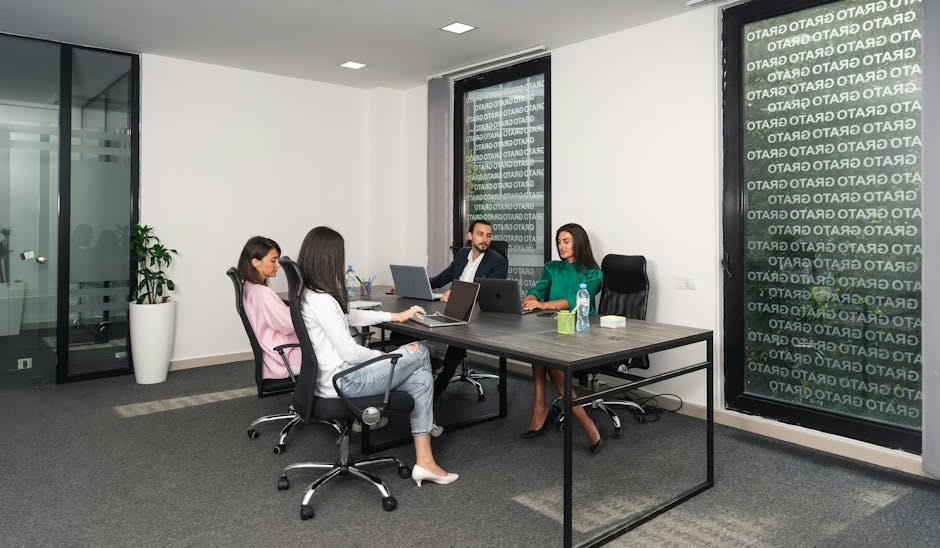Georgia Companies Brace for Impact as Trade Tariffs Loom
Local Businesses Prepare for Economic Uncertainty
Atlanta-based companies are strategizing to navigate the potential fallout from proposed tariffs that could significantly impact their operations and bottom lines. As trade tensions escalate, Georgia businesses find themselves at a crossroads, balancing preparation with uncertainty.
“We’re closely monitoring the situation and developing contingency plans,” says Jennifer Martinez, CEO of Atlanta Tech Innovations, a company that relies heavily on imported components. “These tariffs could substantially increase our production costs, which would ultimately affect our pricing structure and competitiveness.”
Impact on Technology Firms
Technology companies across Georgia appear particularly vulnerable to the proposed tariffs. With complex supply chains often spanning multiple countries, these businesses face unique challenges.
Fast-growing startups in Atlanta’s burgeoning tech scene may be disproportionately affected. Unlike established corporations with substantial cash reserves, these younger companies operate with tighter margins and less financial flexibility to absorb sudden cost increases.
“The tariff situation creates a significant barrier for emerging tech companies,” explains Dr. Robert Chen, an economics professor at Georgia State University. “Companies that were just gaining momentum may find themselves struggling to maintain growth trajectories if forced to reallocate resources to manage tariff-related expenses.”
Investment Concerns
The uncertainty surrounding trade policies has already influenced investment decisions across the state. Several Georgia-based venture capital firms report that their portfolio companies are reassessing expansion plans and capital expenditures.
“We’re advising our companies to war-game various scenarios,” notes Thomas Wilson, managing partner at Atlanta Invest Partners. “While we remain optimistic about long-term prospects, prudent planning requires acknowledging potential short-term disruptions.”
The investment community warns that prolonged trade tensions could dampen enthusiasm for funding Georgia startups, particularly those with business models heavily dependent on international supply chains or foreign markets.
Women-Owned Businesses Face Challenges
Women entrepreneurs in Georgia report unique concerns about navigating the potential tariff landscape. A recent survey conducted by the Georgia Women’s Business Alliance found that 68% of women-owned businesses in the state expect significant operational challenges if proposed tariffs are implemented.
“Women business owners often operate in sectors with particularly thin margins,” explains Samantha Powell, president of the alliance. “Many have worked incredibly hard to establish their companies, and these tariffs threaten to erode years of progress.”
The alliance has organized a series of workshops to help women entrepreneurs develop strategies to mitigate tariff impacts, focusing on supply chain diversification and cost management techniques.
Preparing for Uncertainty
Despite the challenges, Georgia companies are taking proactive steps to prepare for various outcomes. Strategies include:
– Diversifying supply chains to reduce dependency on heavily tariffed goods
– Building inventory reserves before tariff implementation
– Exploring domestic sourcing alternatives
– Developing pricing strategies that can absorb some increased costs
– Accelerating digital transformation initiatives to improve operational efficiency
“Companies that view this situation as an opportunity to strengthen their operational resilience may emerge stronger,” suggests Maria Thompson, a supply chain consultant who works with several Atlanta-based manufacturers. “The businesses that adapt quickly will have advantages over competitors who take a wait-and-see approach.”
Looking Ahead
As Georgia companies prepare for the potential impact of tariffs, economic analysts remain divided on the long-term implications. Some suggest that temporary disruptions will eventually stabilize as markets adjust, while others warn of lasting structural changes to Georgia’s business landscape.
“We’re advising our clients to prepare for extended uncertainty,” says James Williams, chief economist at Atlanta Financial Advisors. “Whether these tariffs represent a brief negotiating tactic or a fundamental shift in trade policy remains to be seen, but businesses must be prepared for either scenario.”
For now, Georgia companies continue to adapt their strategies while closely monitoring developments in the ongoing trade discussions, recognizing that their ability to navigate this complex situation may determine their competitive position for years to come.


